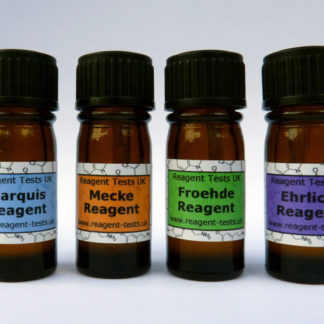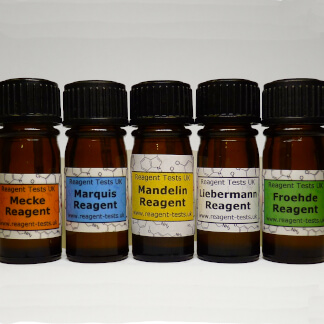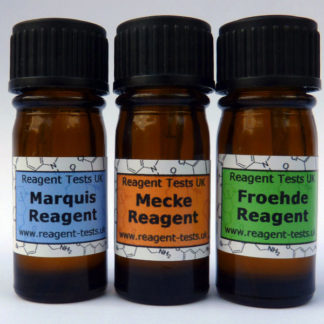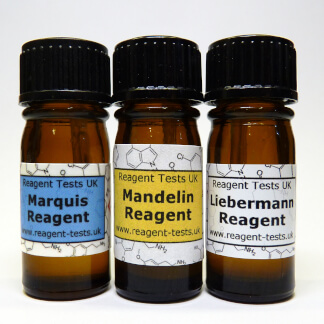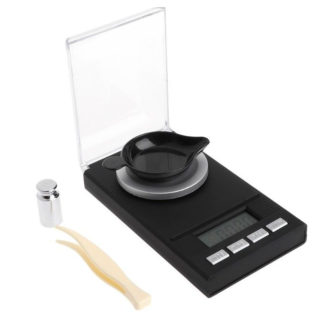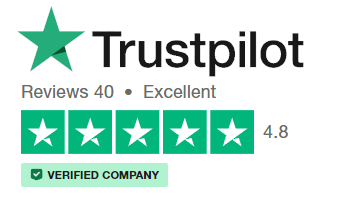Xylazine is a “non-opioid tranquilizer” which works by relaxing muscles directly, with less emphasis on psychoactive effects than commonly used recreational drugs. In the UK it has been very rarely found in other drugs, creating unexpected sleepiness and difficulty moving around without the same desirable effects that people consume drugs like heroin for.
When injected, xylazine lingers in the tissue where it shrinks blood vessels and reduces blood flow. This can lead to reduced wound healing and reduced ability to fight infection, leading to open wounds around injection sites.
It’s easy to test for the presence of xylazine with reagents. You can read how to test for xyalzine here.
Xylazine takes the form of white powder or small clear crystals, so can be easily mixed into other things to make distinguishing them by eye difficult or impossible.
Why we don’t stock xylazine test strips:
We don’t stock the xylazine strips because we don’t think they offer good value to customers.
- Xylazine is extremely rare in the UK
- At a cost of around £1 per sample, they only test for xylazine and not any other risks.
- They are prone to false positives, meaning that 2-3 need to be used (diluting the sample each time), costing £2-3/sample
- Xylazine is not super-potent like fentanyl, so it needs to be present in concentrations well over 10% to be worrying. This means it can be detected easily with reagents, which will detect a huge range of other risks.
- Strips do not give any information about the concentration of xylazine present, meaning pharmacologically inactive 1% contamination gives the same result as 50% contamination
- Even when present in high concentrations, the risks associated with IV use of xylazine can be managed by changing to smoking
This means that xylazine is not a threat because it is not dangerous enough, not common enough and not present in high enough concentrations on the rare occasions when it is found. The cost of detecting with a single-purpose test is not justified unless there is a specific concern about xylazine in a particular sample, in which case it is better to send it to a lab service to get information about xylazine concentration as well as presence.

